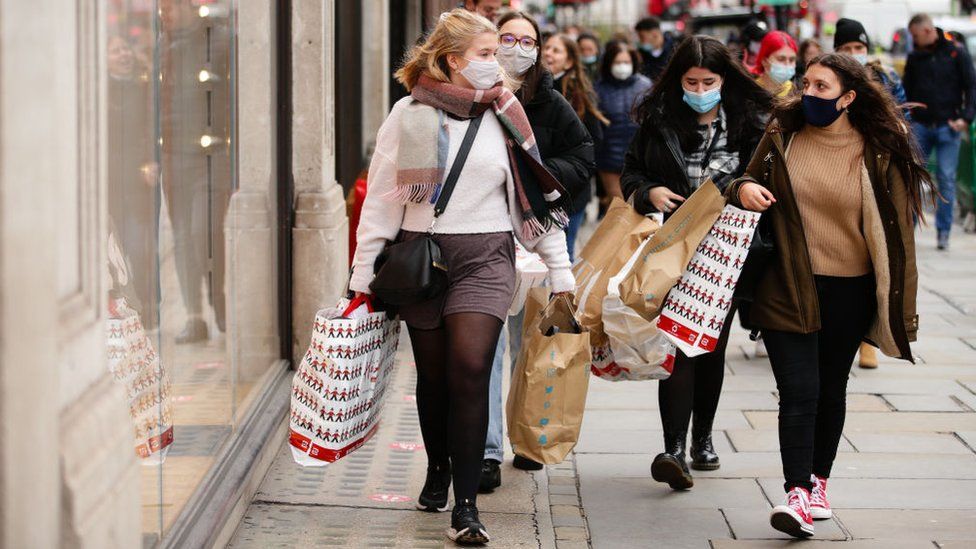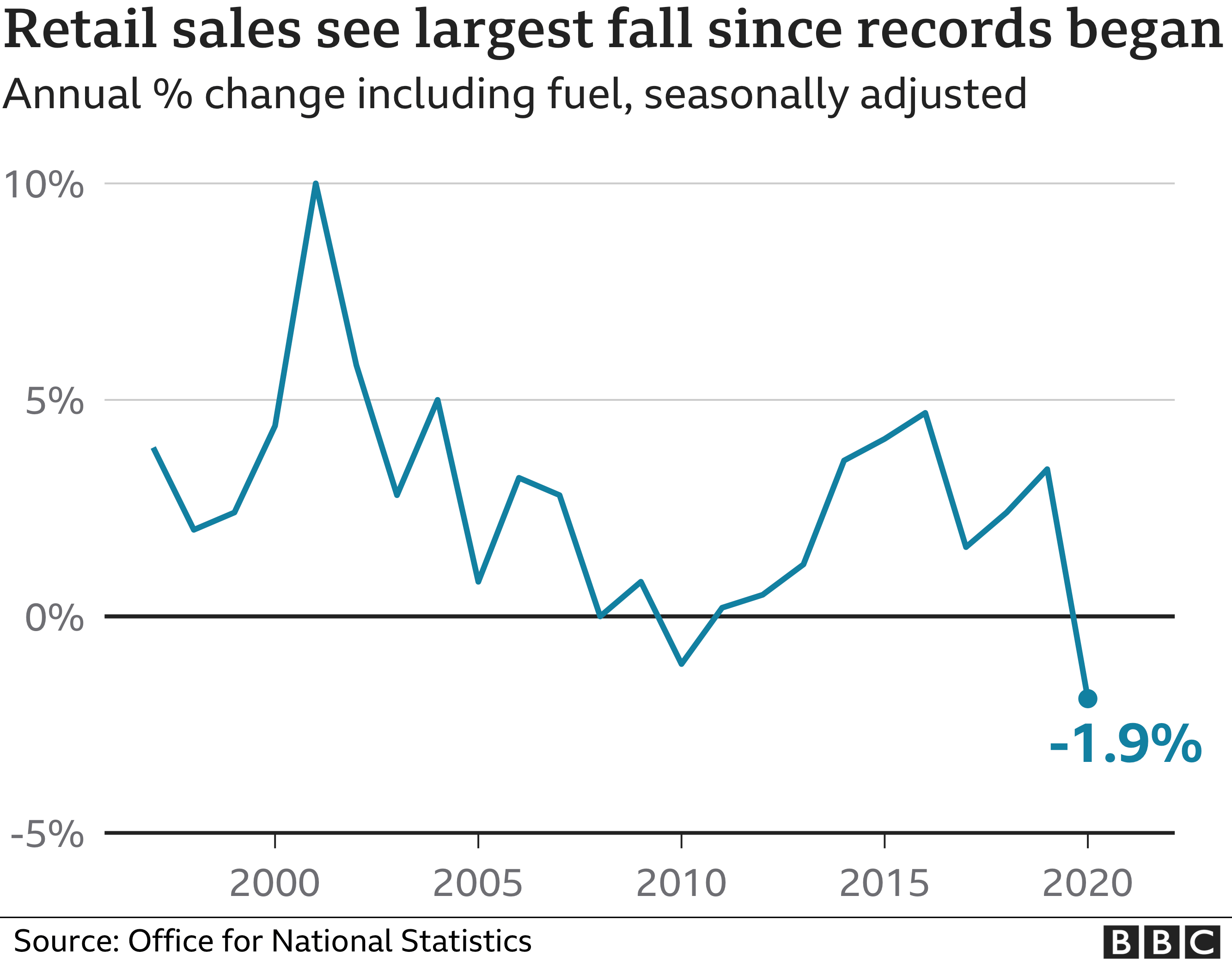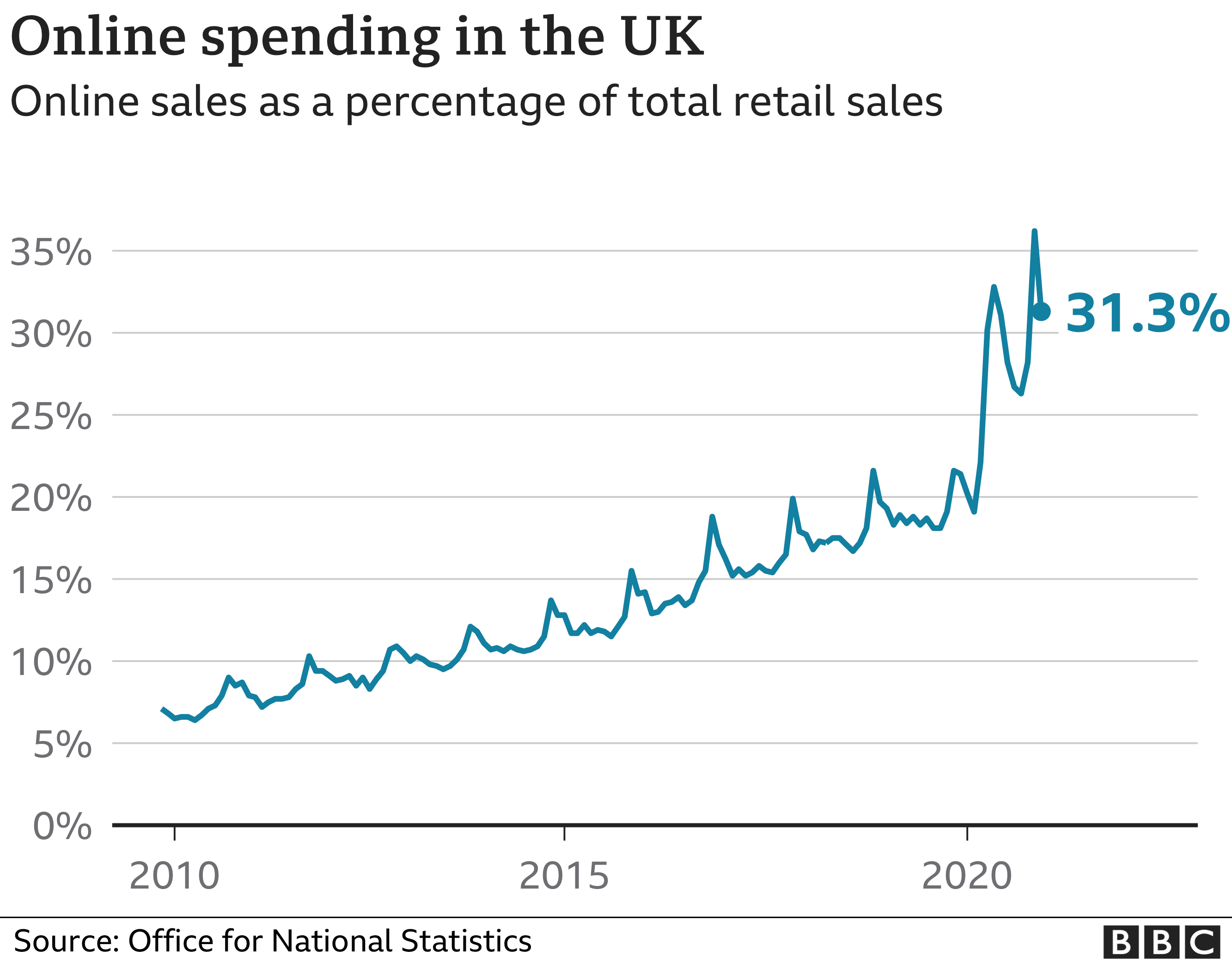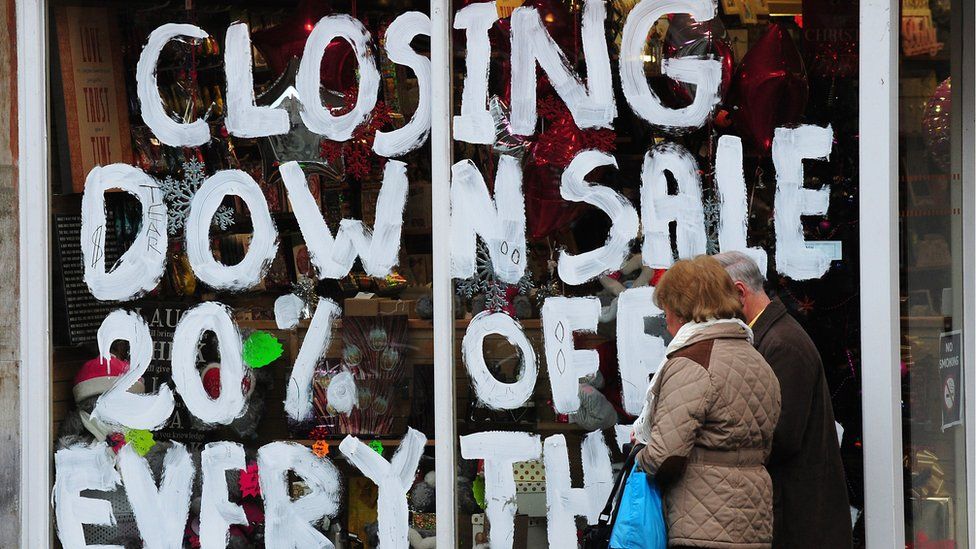
UK retail sales saw their largest annual fall on record in 2020, driven by a slump in demand for fashion.
Sales fell by 1.9% last year, when compared with 2019, the largest year-on-year fall since records began in 1997, official figures show.
Clothes shops were hit hardest, with a record annual fall of more than 25%.
The drop came despite a slight pick-up in December, as a brief easing of some lockdown measures meant more stores were able to open.
Retail sales, including fuel, increased by 0.3% last month when compared with November.

The small increase came following the end of England's national lockdown on 2 December. Sales had slumped by 4.1% in November during a month-long shutdown.
"During December, there was initially a period of eased restrictions early in the month, however, there followed a number of tighter restrictions to non-essential retail in England, Scotland and Wales later in the month," the ONS said.
"Feedback from retailers suggested that these enforced closures later in the month affected turnover, though not to the same extent as witnessed in November."
And while clothing retailers were particularly badly affected in 2020, they saw the largest monthly growth in December at 21.5%.
ONS deputy national statistician for economic statistics Jonathan Athow said that some sectors, however, had been "able to buck the trend" last year.
"The increased popularity of click-and-collect and people buying more items from home led to a strong year for overall internet sales, with record highs for food and household goods sales online."
In a sign of the way the pandemic has changed shopping habits, the value of online retail sales jumped by 46.1% in 2020 when compared with 2019 - the highest annual growth reported since 2008.
Online trade now accounts for more than one-third of all retail sales.

Richard Lim, chief executive of Retail Economics, explained that the rise of online had "polarised industry performance".
"The gap widened between those retailers with the most sophisticated online propositions from those with legacy store-dependent business models," he said.
Online-only retailers such as Boohoo and Asos, for example, have reported strong sales figures in 2020.
Supermarkets in particular have embraced the shift to digital, with online food store sales up 79.3% last year.
Meanwhile, department store chain Debenhams and the Arcadia Group - which owns Topshop - collapsed into administration last year after the pandemic severely reduced in-store sales.
There was better news from the John Lewis Partnership, which also owns Waitrose, on Friday. It said that it would return a £300m emergency coronavirus loan to the government as trading went "better than anticipated" over Christmas.
'No end in sight'
But Helen Dickinson, chief executive of the British Retail Consortium, called for more help for non-essential shops and High Street retailers who continue to be affected by lockdown restrictions.
"With no end in sight for retailers closed in lockdown, many will struggle to survive under a mounting rent burden, and a return to full business rates in April," she said.

She called on government to offer "targeted" business rates relief to businesses worst-affected by the pandemic.
"Decisive action is needed to save jobs, shops and local communities, with town and city centres looking to be particularly hard hit unless the government acts now."
Earlier in January, a report from the Centre for Retail Research said that 2020 was the worst for High Street job losses in more than 25 years, because of the acceleration towards online shopping.
Nearly 180,000 retail jobs were lost last year, up by almost a quarter from 2019, it said.
https://news.google.com/__i/rss/rd/articles/CBMiLGh0dHBzOi8vd3d3LmJiYy5jby51ay9uZXdzL2J1c2luZXNzLTU1NzYyNjQ00gEwaHR0cHM6Ly93d3cuYmJjLmNvLnVrL25ld3MvYW1wL2J1c2luZXNzLTU1NzYyNjQ0?oc=5
2021-01-22 09:18:00Z
52781321835060
Tidak ada komentar:
Posting Komentar